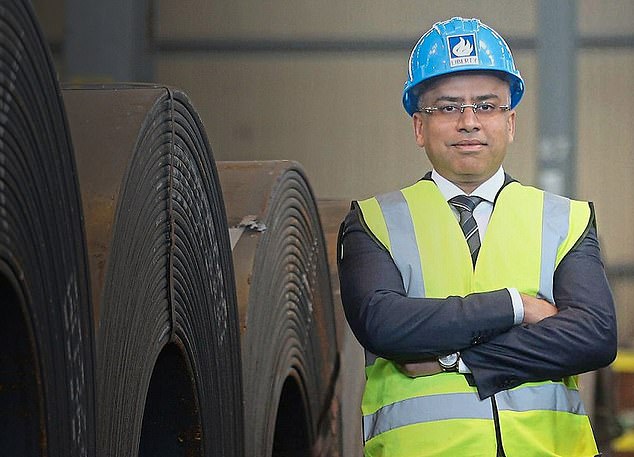In just a few years, British Indian businessman Sanjeev Gupta emerged from the shadows and became a leading industrialist who was dubbed "the savior of British steel." Now he is targets at the steel assets of the second largest producer in Europe, German giant Thyssenkrupp.
He is also expected to make an offer to buy the Port Talbot South Wales steel mill, owned by the Tata Group.
As he himself has said on several occasions, Liberty's strategy is to buy up stranded factories and bring them back to profitability, while transforming the states of depressed industrial areas.
Sanjeev Gupta has been in acquisitions since 2015, acquiring steel businesses in Europe, Australia and the United States of over 35,000 employees. But his growing empire has already raised eyebrows in the City.
The Liberty business, which is under a loose umbrella organization called the Gupta Family Group (GFG) Alliance, now has an annual turnover of £ 15 billion.
More and more questions are arising about how he financed his huge expenses, the opaque accounts of his businesses and his complex, interconnected network of corporate interests.
His ambitious plans have won the support of people like French President Emmanuel Macron, Scotland's first minister Nicola Sturgeon, and even Prince Charles, who appointed him as his personal ambassador for industry.
At the same time, at first glance, Gupta seems like an unlikely candidate for the role of savior of the UK steel industry.
The 49-year-old businessman was born in Punjab and moved to the UK when he was 12, where he was educated at the exclusive St Edmund's School in Canterbury. In 1992, while a student at Cambridge, he opened the Liberty House trading company.
He worked for two decades in the commodities trade before transforming Liberty into his leading steel firm.
He and his wife Nicola, his former treasurer whom he married in 2008, have three children and own a £ 4.5 million mansion in South Wales called Wyelands.
Gupta was relatively anonymous until 2013, when he bought his first troubled Mir Steel plant in Newport.
He presented an ambitious strategy, which he called "green steel", in which he argued that the way to save UK industry was to participate in all parts of the supply chain.
Clean energy plants could provide electricity that could be used in factories that would produce recycled steel in electric arc furnaces.
These materials will then be turned into component parts that can supply the final product to other businesses, such as car manufacturers. At the end of 2016, he bought several of these assets in Scotland from Rio Tinto.
The deal also granted him 100,000 acres around the slopes of Ben Nevis, instantly making him one of the UK's largest private landowners.
He bought a commercial bank, which he renamed Wyelands (after his Welsh estate), dedicated to small business lending. The company insists that it acts independently of the GFG Alliance.
In early 2017, he bought Tata's specialty steel facility in Rotherham for £ 100m and the Hartlepool pipe mills for an undisclosed price.
He also began to spread his wings by purchasing products in Australia and North America, as well as buying many European steel mills from ArcelorMittal.
Liberty also, but unsuccessfully so far, tried to buy British Steel.
Skeptics have wondered for years how the GFG Alliance - and especially Liberty - is funding its rapid growth and how much money can be made by taking over troubled factories.
The GFG Alliance claims it generates billions of pounds annually, but journalists cannot verify this, since the holding consists of hundreds of complex structures registered around the world.
Many of them lead to offshore areas such as Singapore and the Channel Islands.
The Financial Times raised questions about funding from Wyelands, which following this report began an independent review of its lending and financial control practices.




